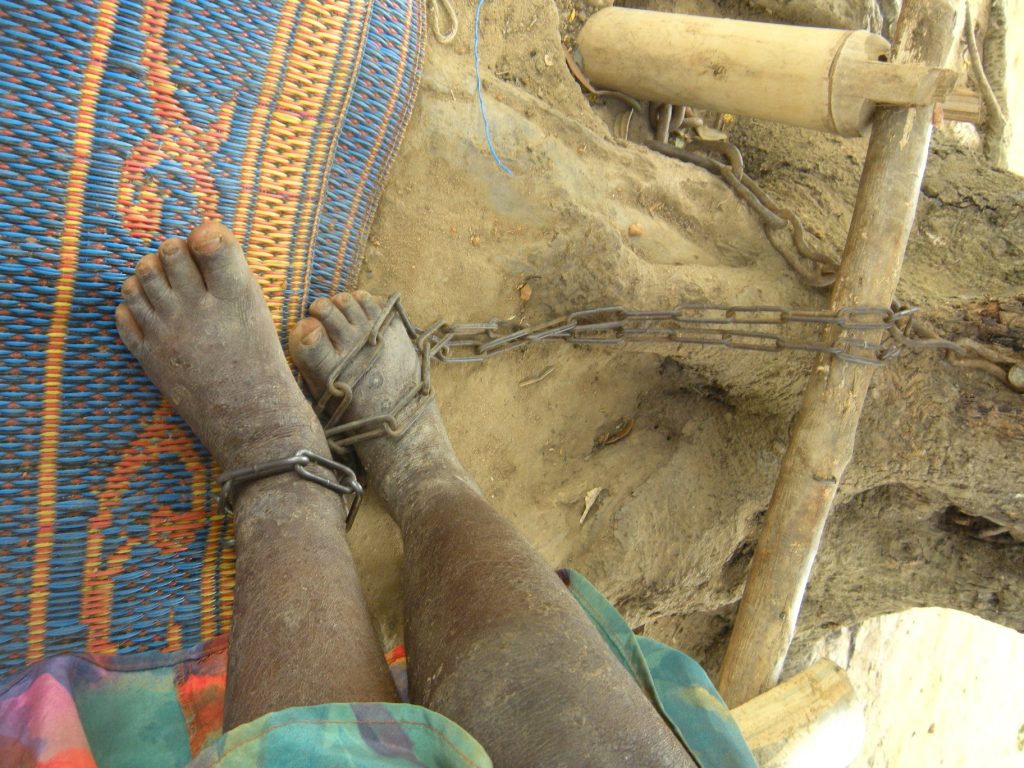Human Rights Watch on Wednesday said that hundreds of Ghanaians with “real” or “perceived” mental health conditions remain shackled in prayer camps across the country.
Government pledged last year to ban the practice, but nothing has happened the rights groups said.
Human Right Watch’s recent visit to Mount Horeb Prayer Camp in a town called Mamfi, with Ghana’s Mental Health Authority, found dozens of people with psychosocial disabilities still chained and detained in overcrowded and congested conditions.
Over 140 people were seen detained in unsanitary and dark rooms with little ventilation, said Human Rights Watch a report it published Wednesday to mark the World Mental Health Day a day for global mental health education, awareness and advocacy against social stigma.
“The stench of urine was overwhelming. One room housed 60 men, some of whom have been there for more than five years. As of October 10, 42 men remain confined in that room. The gate locked. 113 people with real or perceived mental health conditions are now in the camp,” the rights group said in the report.
Commenting on the report, Shantha Rau Barriga, disability rights director at Human Rights Watch said: “Hundreds of people with psychosocial disabilities are still shackled like cattle.”
“It’s not only important for the chains to come off, the government needs to sensitize communities and invest in local mental health services. If not, people with psychosocial disabilities may again be subjected to the cruel and abhorrent practice of shackling and the government’s ban will be an empty threat.”
The group has urged government to take immediate steps to “end shackling establishing a monitoring system to ensure enforcement of the ban, and further developing community mental health services.”
And also, as part of the Inaugural Global Summit on Mental Health, hosted by the United Kingdom on October 9-10, 2018, Ghana should reaffirm its commitment to a rights-based approach to mental health and meaningful consultation with people with psychosocial disabilities (mental health conditions).
In June 2017, in an effort to enforce the law, the Mental Health Authority freed 16 people, including two girls, at Nyankumasi Prayer Camp in central Ghana. Those freed, some of whom have mental health conditions, were taken to nearby Ankaful Psychiatric Hospital. Since then the camp has remained chain-free.
Serious gaps remain in ending the practice of shackling across the country, in part because the monitoring system established by the 2012 Mental Health Act has yet to be set up. It has been stalled by the lack of political will at the highest levels, government officials and partners from nongovernmental groups told Human Rights Watch.
There are no clear figures on how many prayer camps exist in Ghana, the number that chain people with psychosocial disabilities, or the number of people in chains. Without a monitoring system, the camps operate with virtually no government oversight.
Source: Ghana/Starrfmonline.com/103.5FM




